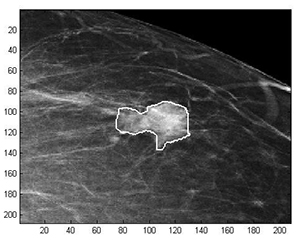Latest News Archive
Please select Category, Year, and then Month to display items
26 January 2022
|
Story Rulanzen Martin
|
Photo University of the Western Cape
 The late Prof Jaap Durand.
The late Prof Jaap Durand.
The management of the University of the Free State (UFS) is saddened to learn of the passing of Prof Jaap Durand, revered theological academic and author. Prof Durand obtained his master’s degree from the UFS and received an honorary doctorate in Philosophy from the UFS in 2004.
Prof Durand has had a colourful career as academic, writer, and struggle activist: from Professor of Systematic Theology and Dean of the Faculty of Theology at the University of the Western Cape to Deputy Vice-Chancellor of the same university. He also served as the ombudsman of Stellenbosch University from 2002 to 2003.
During his life, Prof Durand was a unifier and a critical voice, speaking out against injustice. He has also authored several books, including Dit is amper dag; Evolusie, wetenskap en geloof, and Protesstem.
The UFS joins the higher education community in mourning and is deeply saddened by the loss of such a great theologian and academic. We wish to convey our deepest condolences to Prof Durand’s family, friends, and loved ones during this time.
Mathematical methods used to detect and classify breast cancer masses
2016-08-10
 Examples of Acho’s breast mass
Examples of Acho’s breast mass
segmentation identification
Breast cancer is the leading cause of female mortality in developing countries. According to the World Health Organization (WHO), the low survival rates in developing countries are mainly due to the lack of early detection and adequate diagnosis programs.
Seeing the picture more clearly
Susan Acho from the University of the Free State’s Department of Medical Physics, breast cancer research focuses on using mathematical methods to delineate and classify breast masses. Advancements in medical research have led to remarkable progress in breast cancer detection, however, according to Acho, the methods of diagnosis currently available commercially, lack a detailed finesse in accurately identifying the boundaries of breast mass lesions.
Inspiration drawn from pioneer
Drawing inspiration from the Mammography Computer Aided Diagnosis Development and Implementation (CAADI) project, which was the brainchild Prof William Rae, Head of the department of Medical Physics, Acho’s MMedSc thesis titled ‘Segmentation and Quantitative Characterisation of Breast Masses Imaged using Digital Mammography’ investigates classical segmentation algorithms, texture features and classification of breast masses in mammography. It is a rare research topic in South Africa.
Characterisation of breast masses, involves delineating and analysing the breast mass region on a mammogram in order to determine its shape, margin and texture composition. Computer-aided diagnosis (CAD) program detects the outline of the mass lesion, and uses this information together with its texture features to determine the clinical traits of the mass. CAD programs mark suspicious areas for second look or areas on a mammogram that the radiologist might have overlooked. It can act as an independent double reader of a mammogram in institutions where there is a shortage of trained mammogram readers.
Light at the end of the tunnel
Breast cancer is one of the most common malignancies among females in South Africa. “The challenge is being able to apply these mathematical methods in the medical field to help find solutions to specific medical problems, and that’s what I hope my research will do,” she says.
By using mathematics, physics and digital imaging to understand breast masses on mammograms, her research bridges the gap between these fields to provide algorithms which are applicable in medical image interpretation.